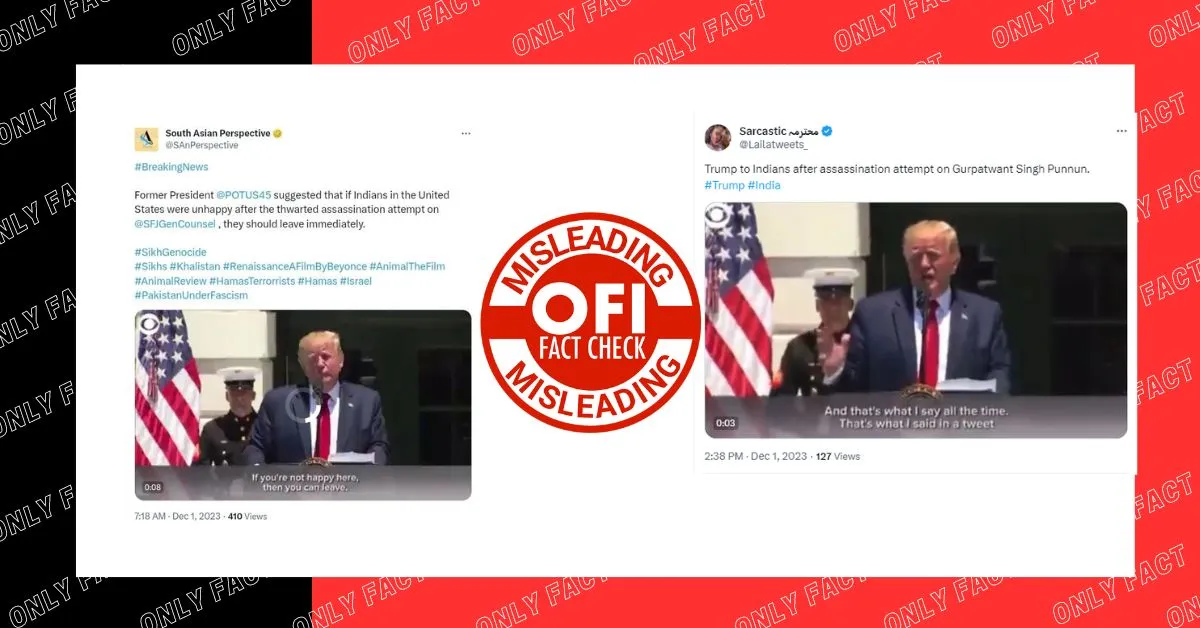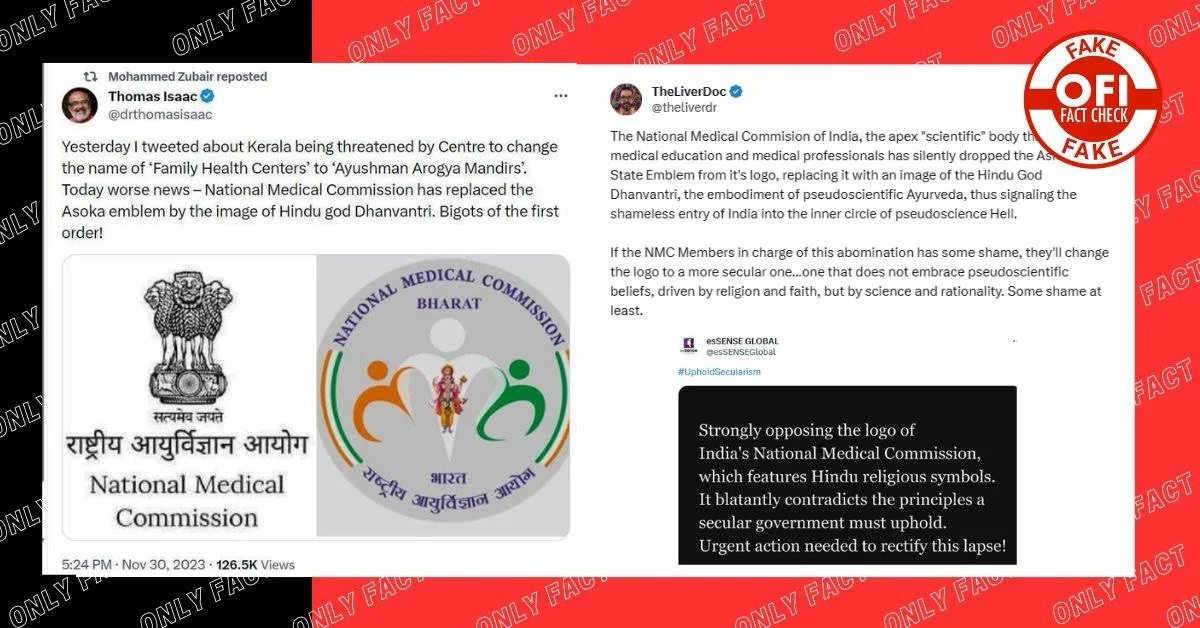A video went viral on social media featuring former President Donald Trump saying, “If you hate our country, if you are not happy here, then you can leave.” However, some X handles alleged that Trump directed these words specifically towards Indians following an assassination attempt on Gurpatwant Singh Punnun. For instance, An X handler named Lailatweets shared the viral video, asserting, “Trump to Indians after assassination attempt on Gurpatwant Singh Punnun.”
Trump to Indians after assassination attempt on Gurpatwant Singh Punnun. #Trump #India pic.twitter.com/QGTkCe4YrF
— Sarcastic محترمہ (@Lailatweets_) December 1, 2023
An X handle named South Asian Perspective shared the viral video and wrote, Former President Trump suggested that if Indians in the United States were unhappy after the thwarted assassination attempt on @SFJGenCounsel (Gurpatwant Singh Pannun) , they should leave immediately.
#BreakingNews
— South Asian Perspective (@SAnPerspective) December 1, 2023
Former President @POTUS45 suggested that if Indians in the United States were unhappy after the thwarted assassination attempt on @SFJGenCounsel , they should leave immediately.#SikhGenocide#Sikhs #Khalistan #RenaissanceAFilmByBeyonce #AnimalTheFilm… pic.twitter.com/b6lPtt24YH
Another X handle named Mehrose Ahmed wrote, Trump is vocal and clear about the Indians residing in the USA when the Indian government is involved in assassination attempts on the American soil.
Trump is vocal and clear about the Indians residing in the USA when the Indian government is involved in assassination attempts on the American soil. https://t.co/EQsWrWYdu0
— Mehrose Ahmed (@mehroseahmed) December 1, 2023
So, is it true that Trump said that if Indians in the United States are unhappy after the failed assassination attempt on Gurpatwant Singh Pannun, then they should leave the US immediately? Let’s Fact Check.
Also Read: Did CM Dhami hold a roadshow after exit of 41 laborers from the tunnel?
Fact Check
During our investigation, our initial step involved conducting a reverse video search of the viral content to verify its authenticity. This led us to a YouTube video on Bloomberg Television’s official channel, dated July 16, 2019, titled “Trump: If You’re Not Happy Here, You Can Leave.” In this video, President Donald Trump addresses four Democratic lawmakers (Alexandria Ocasio-Cortez, Ilhan Omar, Rashida Tlaib and Ayanna Pressley), suggesting they should “go back” to where they came from if they’re unhappy in the United States. Trump made these comments during a White House speech, as reported by Bloomberg.
Subsequently, after a thorough viewing and analysis of the entire video, we concluded that Trump’s remarks were directed towards U.S. lawmakers, not Indians.
Subsequently, we discovered another YouTube video on the Fox Business channel titled “Trump defend tweets: ‘If you are not happy in the US, you can leave,'” uploaded on July 15, 2019. As per Fox Business, Donald Trump’s speech targeted four progressive Democratic congresswomen. He implied that those who dislike the country or are unhappy within it should consider leaving, encapsulating his sentiment as, “If you hate our country, if you’re not happy here, you can leave.”
Following our investigation, we encountered a Time report published on July 15, 2019, unveiling the original video featuring Donald Trump, the source of the viral clip. According to Time, President Trump defended his criticism of four Democratic freshmen (Alexandria Ocasio-Cortez, Ilhan Omar, Rashida Tlaib and Ayanna Pressley) during a White House manufacturing event. He contended that his tweets suggesting they should “go back and help fix the totally broken and crime-infested places from which they came” were not racially motivated.

Hence, all these points prove that the viral video featuring Donald Trump saying, “If you hate our country, if you are not happy here, then you can leave,” isn’t linked to Indians. The video, dating back four years, targeted four Democratic congresswomen—Alexandria Ocasio-Cortez, Ilhan Omar, Rashida Tlaib, and Ayanna Pressley. Trump’s remarks were aimed at these specific lawmakers and weren’t related to any reference to Indians.
| Claim | Trump said to Indians, If you hate our country, if you are not happy here, then you can leave. |
| Claimed by | Lailatweets, South Asian Perspective, Mehrose Ahmed, etc |
| Fact Check | Misleading |








